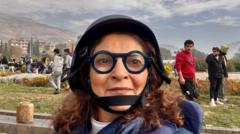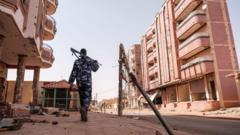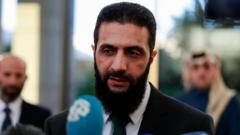Lina Sinjab recounts her return to Syria following the fall of President Assad and the country's emerging hope.
A Journalist's Return: The Fall of Assad and the Future of Syria

A Journalist's Return: The Fall of Assad and the Future of Syria
After a decade of despair, one journalist returns to a transforming Syria
After eleven years spent in exile, witnessing the devastation of Syria from afar, I have finally returned to my homeland, greeted not with fear but with a flicker of hope.
In 2011, as President Bashar al-Assad suppressed pro-democracy protests with ruthless force, I reported on the unfolding tragedy from the heart of Damascus. Those vivid memories from the “day of rage” haunt me, recalling the screams of those tortured, the traumatized faces of survivors, and the silent but palpable fear that lingered over the streets. As violence escalated into a brutal conflict, I was arrested multiple times, and by 2013, I had no choice but to leave, unsure if I would ever return.
Years went by filled with heartache, as I saw my beloved Syria ravaged by war, with millions displaced and an international community seemingly indifferent. I longed for change but never dared to dream that it could be realized, especially with Assad's Russian and Iranian allies fueling his regime's survival.
Then, unexpectedly, the tide turned. I was covering developments in Beirut last week, reporting on anti-Assad rebels seizing Aleppo and Hama, but anticipation of a regime collapse seemed farfetched. However, early Sunday morning, news broke that Assad’s regime had fallen - it felt surreal.
Faced with an arrest warrant issued by the notorious Palestine Branch of Syria’s secret police due to my reports on the protests, I had previously feared returning more than anything. In 2011, I had narrowly escaped violence, where intimidation and torture were rampant. The memories still haunt me: officers threatening to inflict unspeakable horrors if I dared to speak out.
Yet, in a surprising turn, the dreaded security officers were absent as I crossed the border. Liberation washed over me, and I was free to report from Damascus, sharing the euphoria that filled the streets as celebratory gunfire rang through the air after the regime’s collapse. Despite lingering fears about the rise of Islamist factions, the immediate chaos gave way to cautious optimism.
The emerging reality of a post-Assad Syria has brought my friends and family, who fled during the war, back with dreams of rebuilding their lives. I too am home, albeit my apartment lay in ruins since authorities judged me a traitor and destroyed it upon my departure. Nevertheless, I reclaimed ownership, thanks to perseverance and a fair share of bribes, with dreams of revitalizing my space.
In these uncharted territories of hope and potential, I recognize that, while challenges lie ahead, let this moment signify the dawn of a new chapter for Syria—a chance for healing and renewal as we collectively breathe new life into our relentless spirit.
In 2011, as President Bashar al-Assad suppressed pro-democracy protests with ruthless force, I reported on the unfolding tragedy from the heart of Damascus. Those vivid memories from the “day of rage” haunt me, recalling the screams of those tortured, the traumatized faces of survivors, and the silent but palpable fear that lingered over the streets. As violence escalated into a brutal conflict, I was arrested multiple times, and by 2013, I had no choice but to leave, unsure if I would ever return.
Years went by filled with heartache, as I saw my beloved Syria ravaged by war, with millions displaced and an international community seemingly indifferent. I longed for change but never dared to dream that it could be realized, especially with Assad's Russian and Iranian allies fueling his regime's survival.
Then, unexpectedly, the tide turned. I was covering developments in Beirut last week, reporting on anti-Assad rebels seizing Aleppo and Hama, but anticipation of a regime collapse seemed farfetched. However, early Sunday morning, news broke that Assad’s regime had fallen - it felt surreal.
Faced with an arrest warrant issued by the notorious Palestine Branch of Syria’s secret police due to my reports on the protests, I had previously feared returning more than anything. In 2011, I had narrowly escaped violence, where intimidation and torture were rampant. The memories still haunt me: officers threatening to inflict unspeakable horrors if I dared to speak out.
Yet, in a surprising turn, the dreaded security officers were absent as I crossed the border. Liberation washed over me, and I was free to report from Damascus, sharing the euphoria that filled the streets as celebratory gunfire rang through the air after the regime’s collapse. Despite lingering fears about the rise of Islamist factions, the immediate chaos gave way to cautious optimism.
The emerging reality of a post-Assad Syria has brought my friends and family, who fled during the war, back with dreams of rebuilding their lives. I too am home, albeit my apartment lay in ruins since authorities judged me a traitor and destroyed it upon my departure. Nevertheless, I reclaimed ownership, thanks to perseverance and a fair share of bribes, with dreams of revitalizing my space.
In these uncharted territories of hope and potential, I recognize that, while challenges lie ahead, let this moment signify the dawn of a new chapter for Syria—a chance for healing and renewal as we collectively breathe new life into our relentless spirit.



















